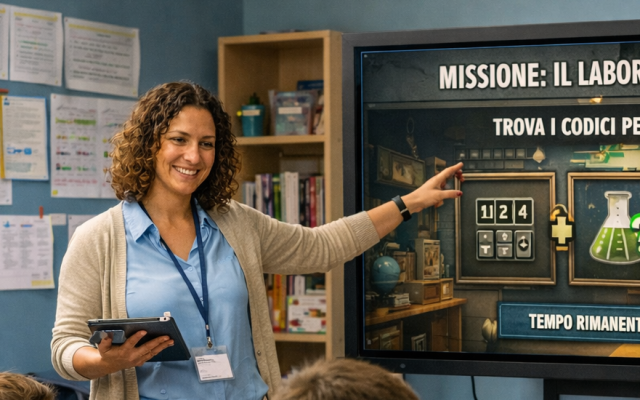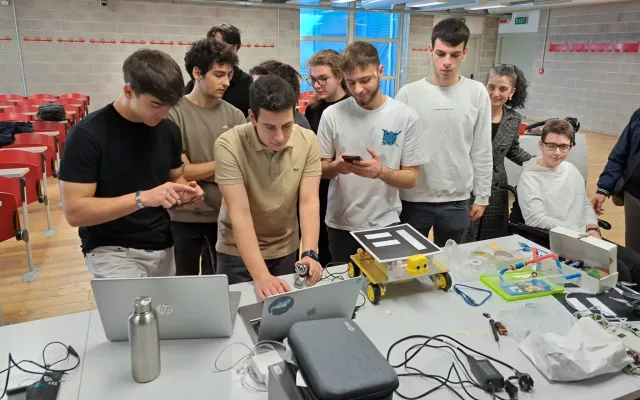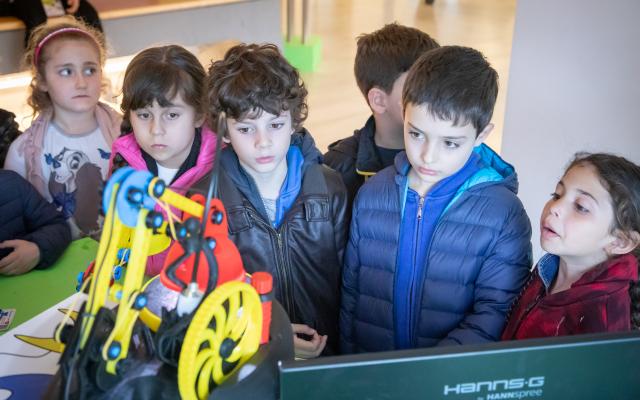The partnership of European Project Edu4AI shares the results of pilot experiences
Amongst the best-known applications of AI are independent driving, chatbots, vocal assistants, and Internet search engines; however, AI is a technology that can significantly transform learning processes, too. Artificial intelligence could open new scenarios for didactic activities, as long as it is employed as a resource to improve education, respecting shared ethical principles.
Examples of technological solutions at school are mentioned in the White Book for Artificial Intelligence at the Service of Citizens edited by the Agenzia per l’Italia Digitale. In particular, it mentions automatic assessment tools, custom-tailored didactic material, automatic tutoring with tools that keep attention high, suggestions on ad hoc variations that can be introduced in the school programme, and the extraction of indicators predictive of school dropout rates.
At present, however, there are no true rules or indications on how to use AI in school, although technical solutions and initiatives on creative and custom-tailored learning are very promising. Both the European Commission’s Action Plan for Digital Education (2021-2027) and the Italian Srategy for Artificial Intelligence, published by the Ministry of Economic Development, have emphasised the need to review school curricula to include courses on artificial intelligence and data and to invest on updating the skills of students and faculty, alike. Obviously, this does not address the student-teacher relationship, but investigates how artificial intelligence could promote human learning. Educators and teachers can lead this transformation by formulating their requests to tech companies.
Project Edu4AI implemented pilot projects in four countries – Germany, Greece, Spain and Italy – addressing, in particular:
- Semi-autonomous vehicles directed by voice commands.
- Autonomous vehicles that recognise road signs based on Raspberry Pi
- Development of a chatbot, as a virtual school assistant
- A model trained to recognise whether a person is wearing a face mask for Covid-19
- Recognition of body stance and identification of body profile to inspire a gamified app on dance techniques
- Facial recognition and analysis of emotions
Pilot project are accompanied by materials and instructions to allow the course to be easily replicated, both in the design and development phases.
The results of Project Edu4AI and the implemented pilot projects will be presented on July 8 through a one-day practical training seminar at the Johannes Kepler Gymnasium in Weil der Stadt in Germany. This is a unique opportunity to see the projects in action and discover how AI can be introduced into schools. Further information is available on the project website.
Each participant will receive a signed certificate from the organising partner (Johannes Kepler Gymnasium) and the coordinator (IN2).
The project partnership will meet ahead of the event to internally disseminate its results.




